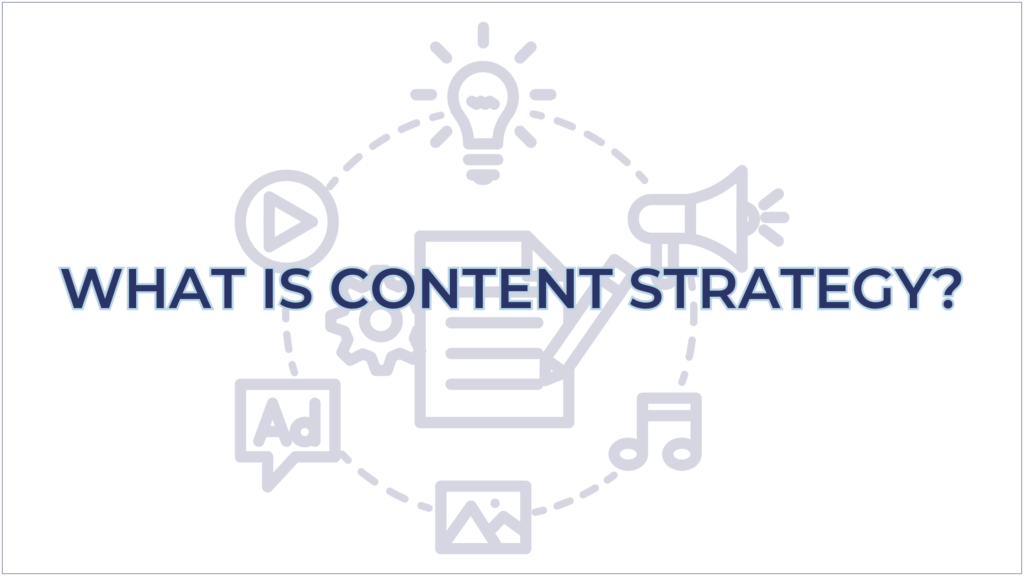
What is Content Strategy?
Content Strategy is the planning, creation and management of content that meets a brand’s goals and audience needs. It’s everything from the idea phase to distribution and analysis of content. The purpose of a content strategy is to make sure all content produced by a brand is consistent, valuable and communicates the brand message
A good content strategy includes:
- Goals and Objectives: What do you want to achieve with your content, whether it’s brand awareness, leads or conversions.
- Target Audience: Who is your audience, what do they care about, and how do they consume content?
- Content Types and Channels: What types of content (blog posts, videos, infographics, etc.) and where (website, social media, email) will it be published?
- Content Calendar: A schedule for creating and publishing content to ensure consistency and timing.
- Metrics and KPIs: What will you measure to see if your content is working?
A content strategy is essential for any business that wants to engage with their audience, build brand authority and achieve long term marketing goals.
Why is Content Strategy Important?
Content strategy is important for many reasons, each contributing to your overall marketing success:
- Consistency and Cohesion: A good content strategy means all content produced is consistent in tone, messaging and quality. Consistency builds brand recognition and trust with your audience. According to the Content Marketing Institute, organizations with a documented content strategy are 60% more likely to be effective at content marketing than those without one.
- Targeted Content Creation: A content strategy helps you create content that’s tailored to your target audience’s needs and interests. By understanding your audience’s pain points and preferences, you can create content that resonates with them, resulting in higher engagement and conversion rates.
- Resource Efficiency: Without a content strategy, you can waste resources on content that doesn’t align with your goals or audience. A content strategy helps you allocate your resources effectively, so every piece of content serves a purpose and contributes to your overall objectives.
- Better SEO Performance: A content strategy that incorporates SEO best practices can improve your site’s visibility in search engines. By creating content around targeted keywords and topics, you increase the chances of ranking higher in search results and driving more organic traffic to your site.
- Clear Metrics and ROI: With a content strategy in place, you can track your content more effectively. By setting clear KPIs and using analytics tools you can measure the ROI of your content marketing and make data driven decisions to optimize future content.
- Adaptability and Scalability: A documented content strategy provides a framework that can be adapted and scaled as your business grows. Whether you’re expanding into new markets, launching new products or adjusting to industry trends, a flexible content strategy allows you to pivot without losing focus.
Working with a Content Agency to Build a Content Strategy
Working with a content agency to develop and implement your content strategy can bring many benefits. A content agency has expertise in content creation, SEO, audience analysis and more– so can help you develop a strategy that’s aligned to your business goals.
Agencies also have industry insights and best practice knowledge, so your content strategy stays relevant and effective over time. By outsourcing your content strategy to an agency, you can focus on other areas of your business and know your content is in good hands.
